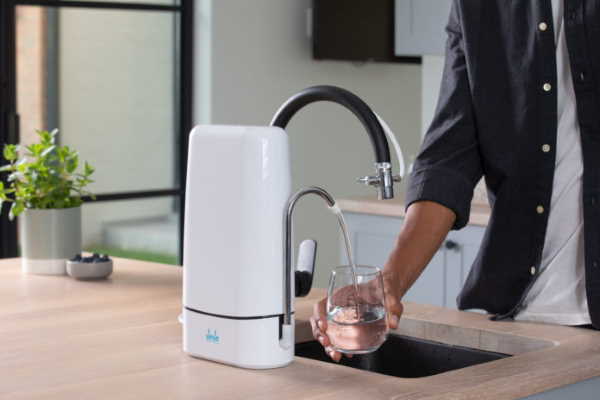With more and more South Africans sinking boreholes to ease their reliance on increasingly erratic and uncertain water supplies, there is one important question all borehole users must ask themselves – just how sure can I be that the water that comes from my tap is safe to use?
The answer is simple – when in doubt, filter it.
Water quality and quantity in South Africa is a much debated and researched issue. The Department of Water and Sanitation’s 2022 Blue Drop report showed an alarming decline in tap water safety procedures. Several municipalities were issued with “red notices with 23% deemed to be at “critical risk”. Residents in those municipalities were warned to boil their water before drinking it.
Just 40% of the 1200 systems audited by the Blue Drop report complied with “South African legal standards for microbiological water quality compliance” and less than a quarter “achieved chemical water quality compliance”. The Department described those in the “critical risk” like being in a hospital’s intensive care unit.
While tap water is regarded as safe to drink in most of South Africa, supply has become so uncertain that utility providers, like Johannesburg Water, have encouraged homeowners to sink boreholes. But, though the quality of the tap water that comes from municipalities is strictly regulated, it is up to borehole owners themselves to ensure that the groundwater they use is safe.
With the considerable investment in drilling the borehole, purchasing equipment, testing the quality and quantity of the water, it will all be for nothing if they turn on their tap and the water is unusable.
“We have to rethink our tap water,” said Sebasti Badenhorst, Executive of sales, marketing and distribution for JoJo. “We have to rethink about how the end-user can control the quality of their tap water. Instead of thinking about the source of the water and the journey it took to get to our homes, our businesses and our farms. Instead of wondering about what properties the water may have picked up along the way, such as dissolved minerals, chemicals and bacteria. We need to rethink how we can make it safe at the end-point of its journey – the tap.
“In 40 years of experience in providing water solutions at JoJo, we have found that the answer to making sure the water from our taps is safe is simple – when in doubt, filter it. Put what comes from the tap through a proper, fit-for-purpose filter that will remove the contaminants you cannot see and make it safe.”
The groundwater that is used by boreholes has been long regarded as safe source of water, but there are increasing worries that the quality is dropping for a variety of reasons, such as human waste from pit latrines, and industrial and agricultural pollution, which introduce chemicals and heavy metals. Borehole users have been advised to test their water before use, but this is an expensive process.
“Sending water to professionals to test is always a good idea when first drilling a borehole. You can also test it yourself, but then you will have to keep testing regularly to make sure the quality does not decline,” said Badenhorst. “Filtering is a cost-effective, simple way to control the quality of water from boreholes and municipalities.”
The choice of filter is vital. Many of the filters on the market are little more than sieves that reduce the amount of sediment and residue that make the water pretty to look at and nice-tasting. But they leave behind the microscopic harmful residue of bacteria, viruses and parasites, amongst others.
“JoJo’s range of filters employs the breakthrough Disruptor™ technology that uses three water treatment methods to remove pathogens and other contaminants. It does so with higher flow rates with less energy consumption. It is technology was developed by NASA to provide astronauts with clean water. They rethought how to make their water clean on space trips.”
The answer was simple – when in doubt, filter it.












